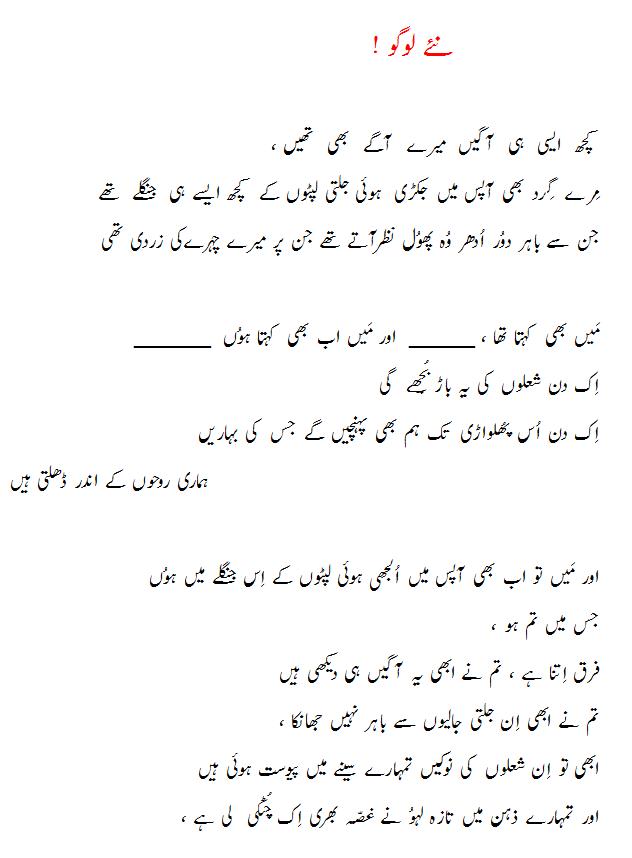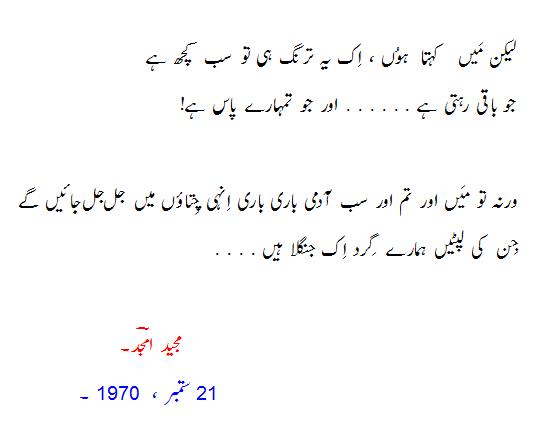Dareechah-e-Nigaarish
Dareechah-e-Nigaarish
Toronto, ON
Canada
talat
- Home
- What's New this month?
- Urdu eBook: How to Type and Publish Urdu eBook
- Setting Up an Urdu eBook Publishing Company
- Urdu Content Web Site: How to Build Urdu Web Site
- Urdu eBooks on the Internet
- Improve Your Writing Skills
- Modern Urdu Poems
- Videos of Majeed Amjad Poems
- Early Poems of Majeed Amjad
- Majeed Amjad: On Man and his Abode
- Majeed Amjad : Romantic Poems
- Majeed Amjad: Socio-Political Poems
- Majeed Amjad: Poems about Children
- Majeed Amjad: Poems about Art
- Munir Niazi : Urdu Poems
- Munir Niazi: Poems about Nighat
- Munir Niazi: Poems Narration and Interview Videos
- Fahmida Riaz : Poems
- Fehmida Riaz : Videos
- Ahmad Faraz: Urdu Poems
- Sarmad Sehbai : Urdu Poems
- Sarmad Sehbai : Videos
- Ahmed Shamim: Biography
- Ahmed Shamim: Poems
- Ahmed Shamim: Videos
- Zahid Dar : Biography
- Zahid Dar: Poems
- Parveen Shakir: Poems
- Sarwat Hussain: Poems
- Sara Shagufta Poems
- Amjad Islam Amjad: Poems
- Maqsood Wafa: Urdu Poems
- Iftekhar Bukhari: Urdu Poems
- Farooq Hassan: Biography
- Farooq Hassan: Urdu Poems
- Mohsin Naqvi: Poems
- Modern Urdu Ghazals-1
- Videos of Majeed Amjad Ghazals
- Majeed Amjad : Ghazals
- Munir Niazi : Ghazals
- Munir Niazi: Ghazal Videos
- Nasir Kazmi : Ghazals
- Nasir Kazmi: Ghazal Videos
- Ahmad Mushtaq: Ghazals
- Ahmad Mushtaq: Videos
- Parveen Shakir : Ghazals
- Parveen Shakir: Videos
- Ahmad Faraz : Ghazals
- Ahmad Faraz: Videos
- Mustafa Zaidi: Ghazals
- Mustafa Zaidi: Videos
- Adeem Hashmi : Ghazals
- Shabnam Shakil : Ghazals
- Zaheer Kashmiri: Modern Urdu Ghazals
- Saltanat Qaiser: Ghazals
- Shahryar: Urdu Ghazals
- Shahryar Ghazals: Music Videos
- Shahryaar: Ghazal Audio Files
- Soofi Tabassum Ghazal Videos
- Saifuddin Saif: Ghazals
- Saifuddin Saif: Music Videos
- Saifuddin Saif: Critique of Craft
- Saghir Siddiqui: Biography
- Saghir Siddiqui : Ghazals
- Saghir Siddiqui: Videos
- Sarmad Sehbai : Ghazals
- Meena Kumari : Ghazals
- Meena Kumari Sings her Ghazals
- Modern Urdu Ghazals-2
- Zafar Iqbal Ghazals
- Obaidullah Aleem: Ghazals
- Athar Nafees: Ghazal Videos
- Hameeda Shaheen: Ghazals
- Sudarshan Faakir: Urdu Ghazals
- Imdad Husain Ghazals
- Khatir Ghaznavi: Ghazals and Audio Gallery
- Shakaib Jalali: Ghazals
- Ahmed Shamim: Ghazals
- Mohsin Naqvi: Ghazals
- Fareed Javaid: Ghazals
- Aanis Moeen Ghazals
- Javed Qureshi: Ghazals and Audio Gallery
- Maqsood Wafa: Ghazals
- Urdu Songs-1
- Modern Urdu Songs
- Majeed Amjad: Urdu Songs
- Munir Niazi: Song Videos
- Sahir Ludhianvi Song Videos
- Sahir Ludhianvi Songs: Audio Files
- Kaifi Azmi Songs: Text and Videos
- Rajinder Krishan Songs
- S. H. Bihari Songs
- Majrooh Sultanpuri Songs
- Gulzar Song Videos
- Gulzar Songs
- Indeevar: Urdu Songs
- Hasrat Jaipuri Songs
- Bharat Vyas: Urdu Songs
- Shakeel Badayuni : Song Videos
- Anand Bakhshi: Songs
- Anand Bakhshi Songs: Videos
- Raja Mehdi Ali Khan Songs
- A. M. Turaz Songs
- Sudarshan Faakir: Urdu Songs
- Urdu Songs-2
- Irshad Kamil Songs
- Fayyaz Hashmi Songs
- Nakhshab Jarchavi: Songs and Ghazals
- Asad Bhopali Song Videos
- Manoj Muntashir: Urdu Songs
- Masroor Anwar Songs
- Saba Afghani Song Mere Mehboob Na Ja
- Sarmad Sehbai : Urdu Songs
- Sarmad Sehbai: Song Videos
- Amjad Islam Amjad: Urdu Songs
- Naqsh Lyallpuri Songs
- Parveen Shakir: Urdu Songs
- Amir Zaki Songs
- Kulwant Jani Songs and Music Videos
- Building Blocks of Nostalgia Nagar
- Building Blocks of Nostalgia Nagar 02
- Pehchaan Aashkaar Kartay Safar kay Geet
- Fusion Music Urdu Song Videos
- Modern Punjabi Poetry
- Problems in Typing Punjabi using Urdu Fonts
- New Shahmukhi Alphabet Characters for some Quintessential Punjabi Sounds
- Munir Niazi Punjabi Poetry
- Amrita Preetam Punjabi Poetry
- Shiv Kumar Batalvi : Biography
- Shiv Kumar Batalvi Poems
- Shiv Kumar Batalvi Songs
- Videos of Shiv Kumar Batalvi's Poetry
- Nasreen Anjum Bhatti: Biography
- Nasreen Anjum Bhatti: Punjabi Poems
- Paash (Avtaar Singh Sandhu)
- Manzoor Jhalla: Songs
- Manzoor Jhalla Song Videos
- Ahmad Rahi: Song Videos
- Tanvir Naqvi Punjabi Song Videos
- Hazeen Qadri: Punjabi Songs
- Khawaja Pervaiz Punjabi Songs
- Nasreen Anjum Bhatti: Poems
- Professor Mohan Singh: Punjabi Poems
- New Punjabi Songs
- Saraiki Songs
- Fusion Music Punjabi Song Videos
- Punjabi Folk Songs
- Punjabi Folk Songs: Video Gallery
- Punjabi Folk Songs: Audio Gallery
- Shah Husain Kafis: Audio Gallery
- Syed Asif Shahkar: Punjabi Poems
- New Voices !!
- Hum Kahaan se chale thay
- People's History of Pakistan : First Set of Videos
- People's History of Pakistan: 2nd Set of Videos
- A Leftist View of Pakistan's History
- Progressive Writers Movement (India, Pakistan)
- Dr Rasheed Jahan: Short Story Writer, Playwright
- Sajjad Zaheer: London Kee Aik Raat
- Sajjad Zaheer: Progressive Writers Movement & the Left
- Zaheer Kashmiri: Leftist Politics in British India
- Qamar Yoorish: Short Story Writer
- Shahid Mahmood Nadeem: Playwright/Director
- Missing Persons in Pakistan: Activists, Journalists, Writers
- Tayyaba (10 Yr Old Pakistani Maid) Tortured
- 100,000 Pakistani Laborers Sent Back from Saudi Arabia
- Mosque Schools in Pakistan
- An Alternative History of Man with Videos
- English Translations of Urdu Poetry
- Translations of Foreign Poetry
- Urdu Fiction Writers
- Dr Rasheed Jahan: Feminist Progressive Urdu Fiction Writer
- Sajjad Zaheer: Modern Urdu Fiction Writer
- Ghulam Abbas
- Saadat Hasan Manto
- Ismat Chughtai
- Quratulain Haider
- Krishan Chander: Urdu Novelist & Short Story Writer
- Aziz Ahmad
- Hajra Masroor: BioSketch
- Hajra Masroor: Short Stories
- Jamila Hashmi
- Abdullah Hussein: BioSketch
- Abdullah Hussein: Selected Passages from his Novels
- A. Hameed
- A. Hameed: Photo Gallery
- Julien Columeau: Urdu Novelettes, Short Stories
- Punjabi Fiction Writers
- Third World Fiction Writers
- Developed World Fiction Writers
- Art Films
- SCENES from Art Films
- Elia Kazan's "America America"
- Taiwanese Art Films
- Chinese Art Films
- Some Indian Art Films
- Avishkaar: Indian Art Film 1973
- Mrinal Sen: Antareen (The Confined)
- Indian Art Films-1: YouTube Links
- Indian Art Films-2: YouTube Links
- Indian Romantic Comedies: YouTube links
- Iranian Art Movies
- Italian Art Films
- American Art Films
- New Zealand Art Films
- British Art Films
- Urdu Publishers in Pakistan
- Punjabi Publishers in Pakistan
- Book Stores in Pakistan
- Links to Web Resources
- Videos Talat Afroze Poems-1
- Videos Talat Afroze Poems-2
- Talat Afroze: Urdu Poems
- Talat Afroze: Urdu Songs
- Talat Afroze: Urdu Ghazals
- Talat Afroze: Punjabi Poems
- Talat Afroze: Short Stories
- Talat Afroze: Urdu Novel (in preparation)
- About Us
- Contact Us
Improve Your Writing Skills
 اپنی اُردو تخلیقات کو بہتر کیسے بنائیں
اپنی اُردو تخلیقات کو بہتر کیسے بنائیں
How to Improve your Writing Skills
I believe that all great poetry materializes from a sacred revelation conveyed in a subtle way telepathically to the Poet . . . all great poets can absorb the divine telepathic revelation termed Aamad in Urdu and can translate it into great poetry while others, lesser calibre poets, are not talented enough to capture all the strength and beauty of the message being conveyed to them . . . you may recall a couplet by Mirza Ghalib:
آتے ہیں غیب سے یہ مضامیں خیال میں
غالبؔ صریر ِ خامہ نوائے سروش ہے
Mirza Ghalib says in his couplet above that the content of his poetry comes to him from the Great Unknown in this Universe . . . the scratching sound which the pen makes on paper in the dead of night as the Poet writes is really the flapping of the wings of Angels as they hover over the Poet to convey divine thoughts to benefit and guide humanity . . . All great poetry, whether it is philosophical poetry or imagistic poetry or narrative poetry where narrative poetry includes all great romantic poetry, ultimately triggers a resonance in our hearts and guides our hearts towards Love as the greatest of all divine gifts bequeathed upon Man . . . Only and only Love can change this Universe for the better . . .


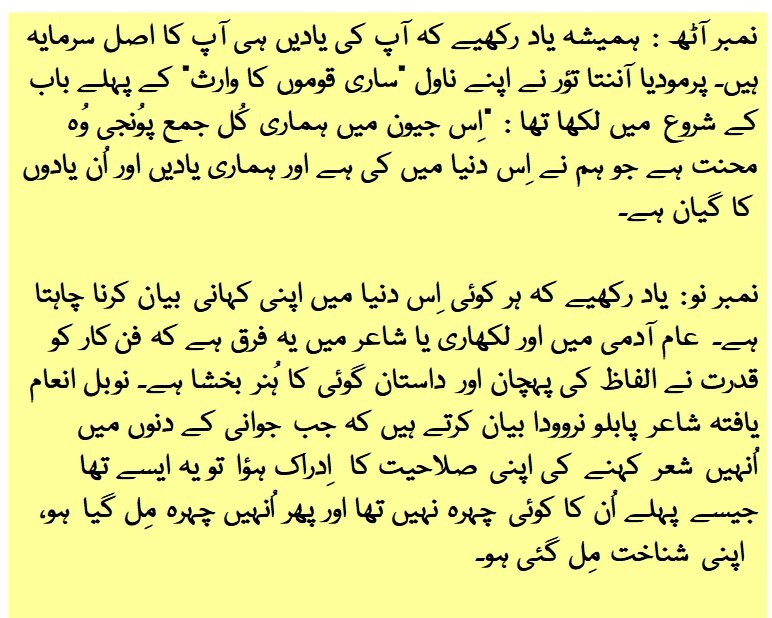



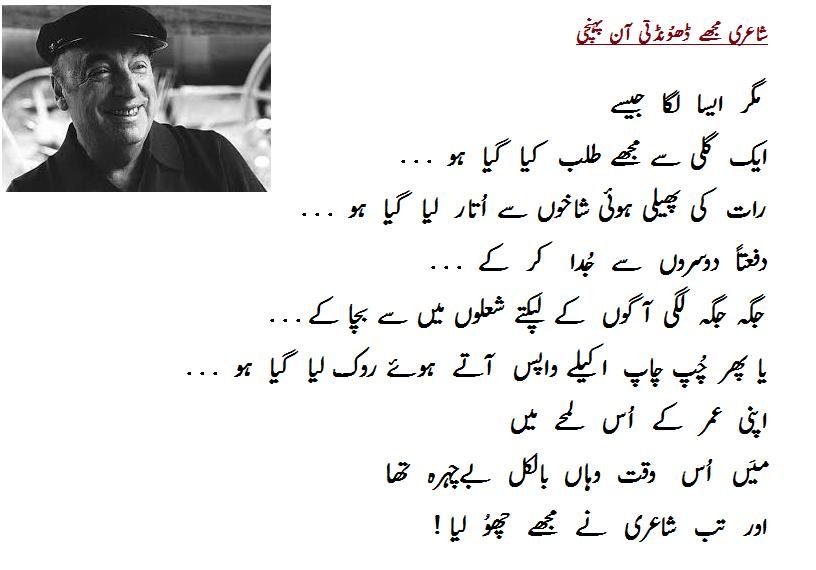
مجید امجد کی نظم نئے لوگو ہر نئے شاعر کو پُکار رہی ہے ۔ ۔ ۔
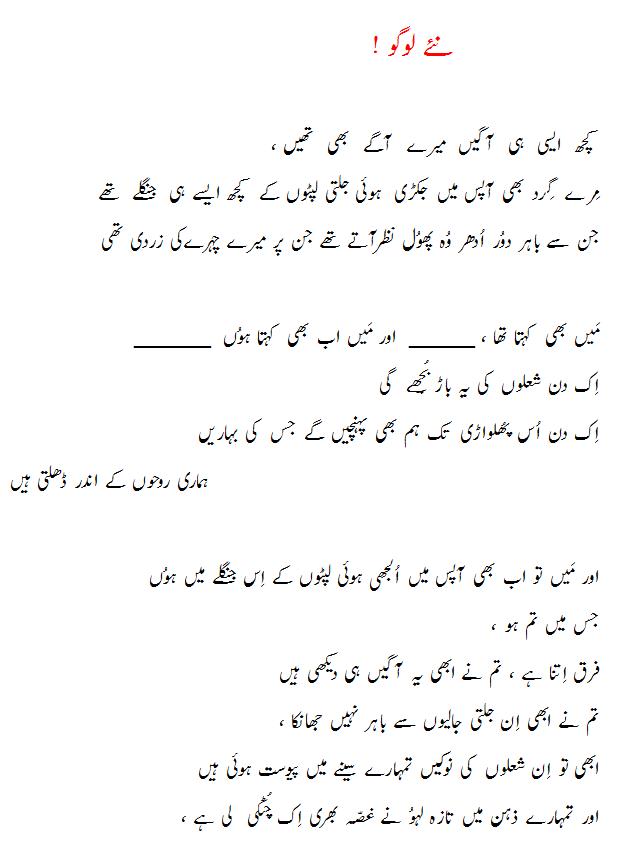

ہر کوئی اپنی کہانی کہنا چاہتا ہے ۔ ۔ ۔ یہ پیغام شے لندر سنگھ کے لکھے گیت موسم بیتا جائے میں جھلکتا ہے ۔ ۔ ۔

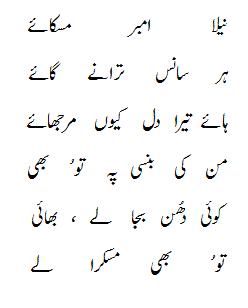


مجید امجد شاعر اور سماج کی دوُری کے بارے میں لکھتے ہیں ۔ ۔ ۔
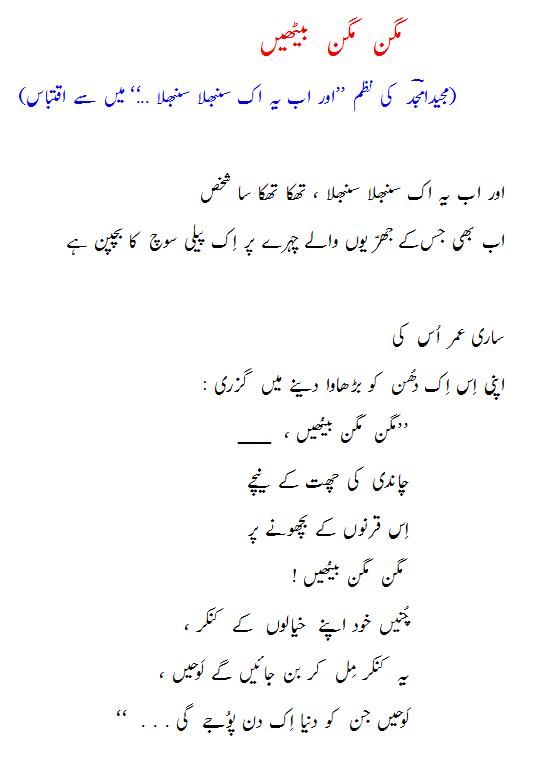

One fan of my web site Dareechah emailed me in March, 2021 to say that he would like to learn Urdu poetry. Here is my reply which I emailed to him:
شاعری وُہ خود کلامی ہے جو پڑھنے والے نے سُن لی ہے
خود کو جانو ۔ ۔ ۔ اپنی ذات کی پہچان ہی تمہیں تمہاری زندگی کا راستہ بتائے گی
Ghalib wrote long ago: The sound the Poet's pen makes on paper while writing is the whispering of the Angels
کھوجیں اپنے اندر کے
کچھ گھور نہاں خانے
For all Dareechah web site fans:
I am in no way qualified to give advice on how to improve one's Urdu poems. Nevertheless, some Dareechah fans have asked me about this subject. Based on my own life experiences in writing Urdu poems, I would strongly advise you to do the following:
1. Keep on learning new words in Urdu... if you read a wide range of fiction and non-fiction in Urdu, your vocabulary and diction will expand over time... this is your palette of colors to use in your Urdu poems.
2. Stay true to your innermost urges, to your identity, your point of view... be fiercely individualistic in every Urdu poem you write.
3. Be courageous.... be daring.... never compromise.... go boldly where your unique experience is taking you, choose words appropriate to your experience and never be afraid to experiment with words and images in your poems.
4. Always remember, you are striving to create new images in verse... your aim should be to create new word combinations which bring the image alive... what the Chinese Nobel laureate Gao Xingjian called the "actualization of language" i.e. the ability of the poet or writer to use words in such a way that the whole scene, the whole experience becomes alive for the reader.
5. Always remember the words of the great Indonesian writer Pramoedya Ananta Toer about understanding your past, learning from your past... he wrote :
"A human blind to the future, I could do no more than hope to know.... We never even really understand what we have already lived through!!"
(Child of All Nations, Page 13, ending lines of 4th para of Chapter 1; publisher: Penguin Books).
6. Remember also what Toer wrote through one of his characters about our most precious belonging... he wrote that the only wealth, the only heritage we collect during our existence in this universe is the fruit of our labors (the work we carry out) and our unique experience of Life: our memories and our understanding of them !!
7. Remember that "Everyone wants to talk ... everyone wants to tell his or her story to the world!" The difference between the common man and the Artist is that the Artist is blessed with a talent for story telling and a command over language!! The great Chilean poet, Pablo Naruda, recounts in one of his poems how he realized that he could write poems and that this gave him his identity... in his poem he likens this realization to being without a face and getting a face with characteristic features !! His poem goes thus :
Poetry Arrived in Search of Me
And it was at that age ... Poetry arrived
In search of me. I don't know, I don't know where
it came from, from winter or a river.
I don't know how or when,
no, they were not voices, they were not
words, nor silence,
but from a street I was summoned
from the branches of night,
abruptly from the others,
among violent fires,
or returning alone,
there I was without a face
and it touched me.
Pablo Neruda, Chilean poet, Nobel laureate.
Go buy and watch the Italian art movie "Il Poste" (The Postman with English subtitles; available from Amazon.com) about the great poet Pablo Naruda and his fictional interaction with a postman on an island near Italy: this interaction with Neruda transforms the postman into a poet, makes him realize his inner potential. A description of this movie also appears on Dareechah's Art movie section.
8. Majeed Amjad's poem "Na-ay Logo!!!" (see full text of this poem below) is great advice to all young poets to persevere and never loose that inner "tarang" ... that "zest for creation" that sustains all creative artists !!
(this poem also appears on the home page of Dareechah)
I started my own journey of self discovery when I was a college student in Lahore's Forman Christian College in the mid-1970's. My first modern Urdu poetry purchases were "Shab e Rafta Kay Baad" by Majeed Amjad and "Maah e Muneer" by Munir Niazi.
These two great modern Urdu poets showed me new and novel ways of using Urdu words to express emotions and experiences ... stories. I realized that I could write Urdu poems and started on my journey of expression, trying to tell my story which continues to this day...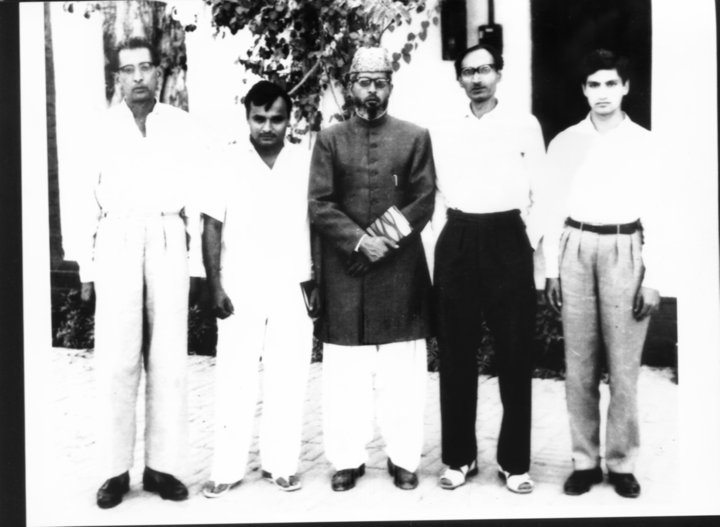
Mohtaram Majeed Amjad (first one from left) with some of his Sahiwal literary friends including Professor Khawaja Mohammad Zikriya.
Majeed Amjad's Urdu poem "Na-ay Logo!" should be a beacon to all young and upcoming modern Urdu poets
Everyone wants to tell their story.... but our time in this Universe is limited and fleeting.... this is summed up beautifully in this song written by Shailendra Singh
"Mausam Beetaa Jaye !"
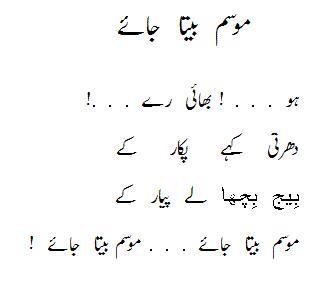
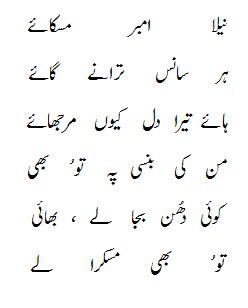
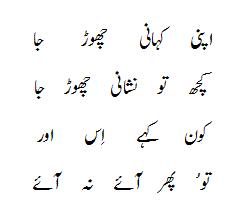
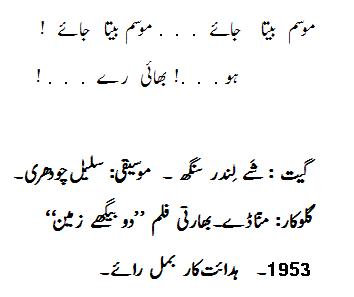
Some of the many Electronic Books on Creative Writing Available from www.amazon.com
The Cambridge Companion to Modernist Poetry
Alex Davis and Lee Jenkins
Kindle Edition
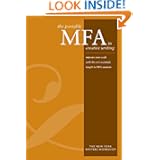
Portable MFA in Creative Writing by New York Writers Workshop (May 13, 2006)
Note: MFA is an acronym for Master of Fine Arts
| Kindle Edition Auto-delivered wirelessly | ||||||
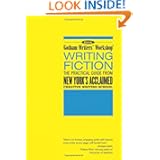
Writing Fiction: The Practical Guide from New York's Acclaimed Creative Writing School by Gotham Writers' Workshop (Aug 1, 2003)
| Kindle Edition Auto-delivered wirelessly | $9.39 |
The Cambridge Companion to Creative Writing (Cambridge Companions to Literature) by David Morley and Philip Neilsen (Mar 19, 2012)
Negotiating with the Dead: A Writer on Writing (The Empson Lectures) by Margaret Atwood (Mar 7, 2002)
from the pen of Canada's best loved writer, author of "The Hand Maiden's Tale" and many other bestselling novels.
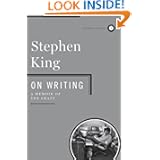
On Writing: A Memoir Of The Craft by Stephen King
(Oct 3 2000) - Kindle eBook from the pen of Stephen King, the author of countless bestselling horror stories and the touching novel "The Body" which was adapted into the hit Hollywood movie "Stand By Me" by director Rob Reiner.
(560) 560 Reviews
Books on Creative Writing, especially on writing Poetry, recommended to Dareechah by
Professor Robert McGill,
Faculty Member for Creative Writing,
Department of English, University of Toronto:
Books on Creative Writing
Burroway, Janet. /Imaginative Writing: The Elements of Craft/. 3rd ed. New York: Pearson, 2011.
Dillard, Annie. /The Writing Life/. 1989. New York: HarperPerennial, 1990.
Gardner, John. /On Becoming a Novelist/. New York: Norton, 1999.
Hodgins, Jack. /A Passion for Narrative: A Guide for Writing Fiction/. 3rd ed. Toronto: McClelland & Stewart, 2001.
Lamott, Anne. /Bird by Bird: Some Instructions on Writing and Life/. 1994. New York: Anchor, 1995.
Books on Fiction
Booth, Wayne C. /The Rhetoric of Fiction/. 1961. Second Edition. Chicago: U of Chicago P, 1983.
Kundera, Milan. /The Art of the Novel/. Trans. Linda Asher. New Yorker: Perennial Classics, 2000.
O’Connor, Flannery. /Mystery and Manners./ Ed. Sally and Robert Fitzgerald. London: Faber, 1984.
Wood, James. /How Fiction Works/. New York: Farrar, 2008.
Books on Poetry
Eliot, T. S. /On Poetry and Poets./ London: Faber, 1957.
Hollander, John. /Rhyme’s Reason: A Guide to English Verse/. 3rd ed. New Haven: Yale UP, 2001.
Pinsky, Robert. /The Sounds of Poetry: A Brief Guide/. New York: Farrar, 1998.
Dareechah-e-Nigaarish
Toronto, ON
Canada
talat
